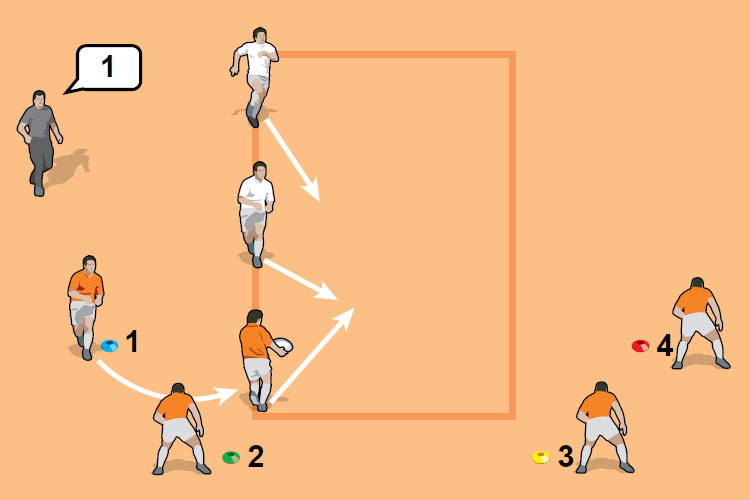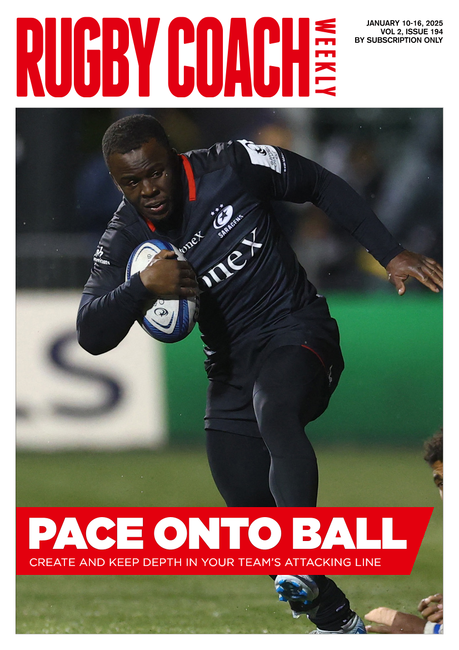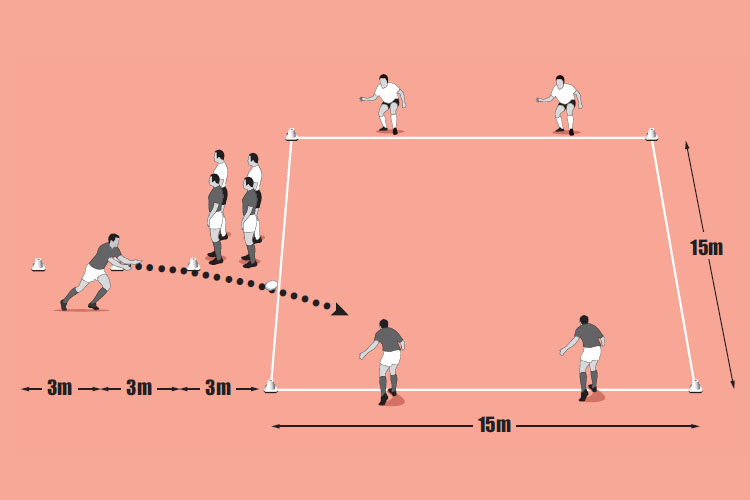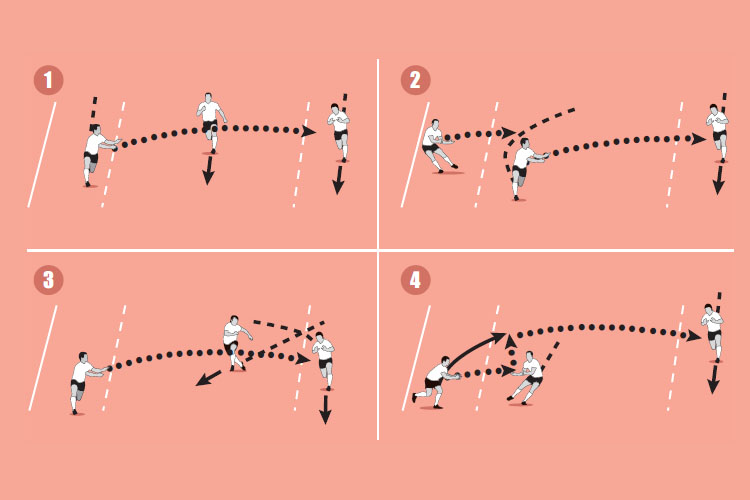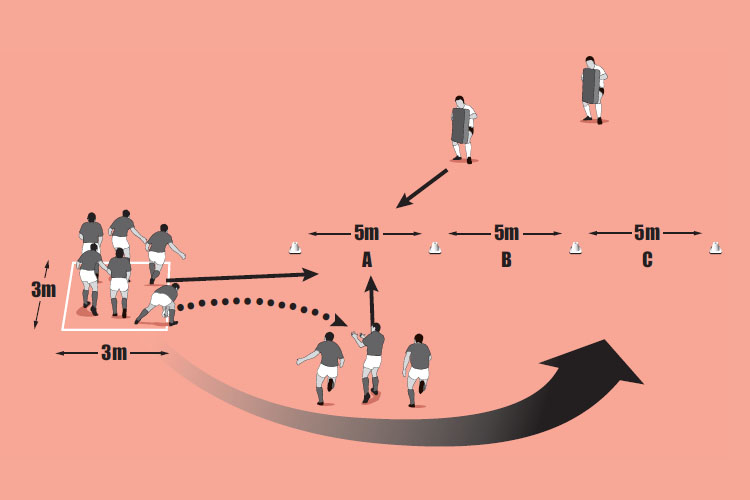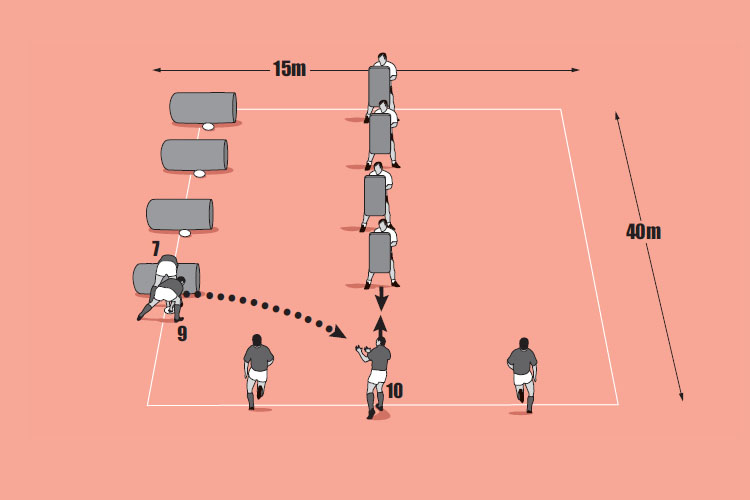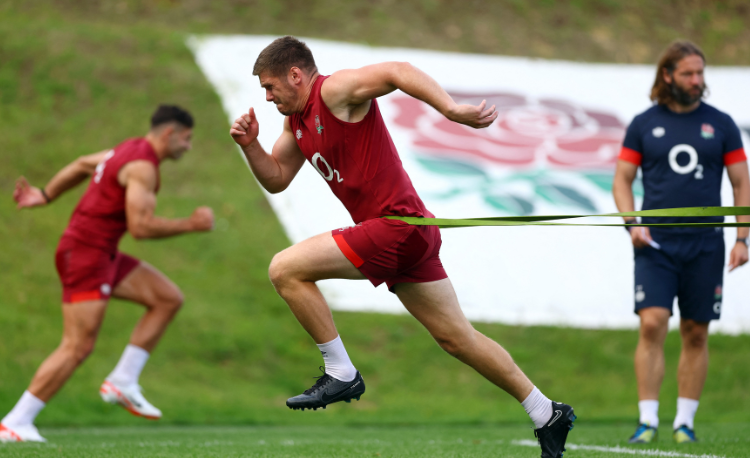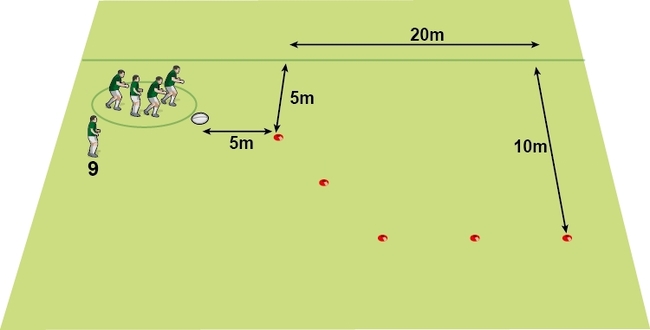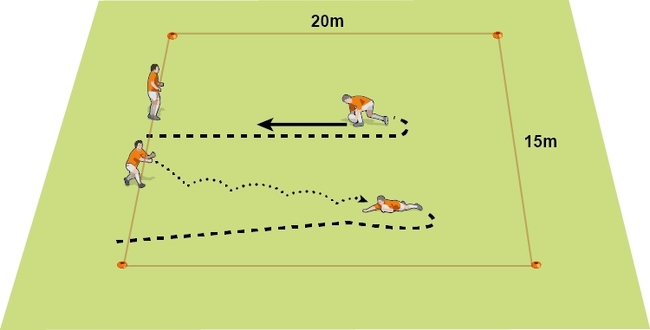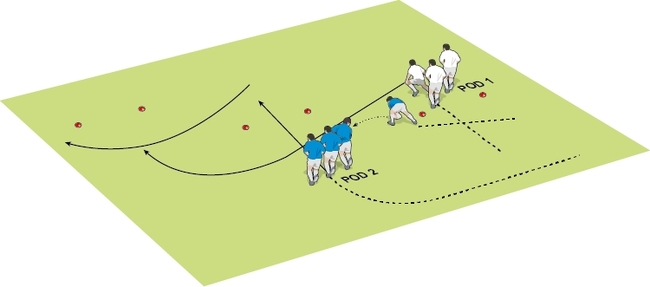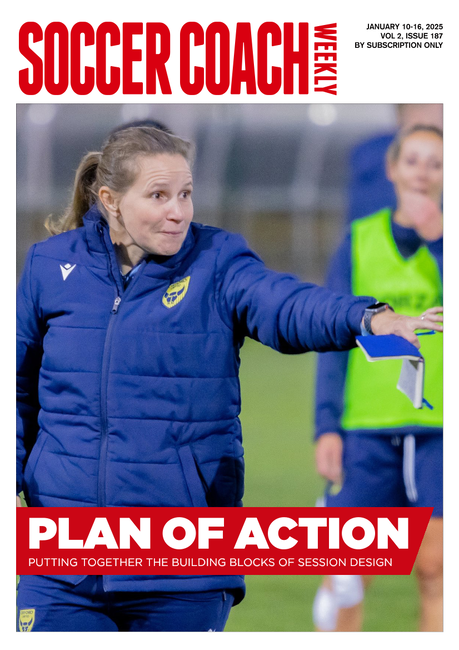Offload or not
Continuity out of the tackle is one of the most powerful weapons to break down defences. Players have to decide whether they can offload or go to ground and wait for support. Players must either risk making a pass or keep the ball and present it safely.
Warm up time: 5
Session time: 6-9
Development time: 6-9
Game time: 15-20
Warm down time: 7
What to think about
Though you want to concentrate on good technique for offloads and ball presentation, it is more crucial to consider the risks and rewards of continuity. You want players to risk offloading in this session to make sure they know what their limitations are and how they can improve in the contact. Since support players come from unexpected angles, like in a match, communication is important. It helps give the ball carrier the confidence to pass the ball. If they generate this confidence in training, they are more likely to offload in the game.set-up
- Ball carrier, listen for your support: don’t pass unless you are certain of the support.
- Support players – tell the ball carrier what to do – pass or go to ground.
What you get your players to do
Set up three attackers facing you in a press-up position. Put a ball in front of the middle player and a ruck pad on the ground 5m behind these players and a ruck pad holder a further 3m beyond. Shout “GO” and the middle player picks up the ball, turns and runs to the ruck pad. He falls on the pad, either on to his hip or knees. Point to one of the other players at any stage to release them as a support player. If the ball carrier can, he passes to the support player. Otherwise he presents the ball and the support player protects him. The ruck pad holder can come forward to either cover the ball carrier or support player.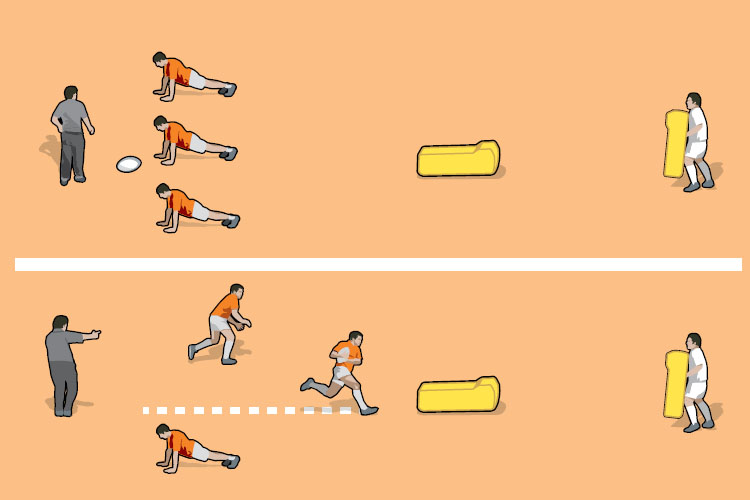
Development
- Release both support players at the same time.
- Replace the ruck pad with a tackler on his knees.
- Have the ruck pad holder act more aggressively at the tackle area (even take away his ruck pad).
Related Files
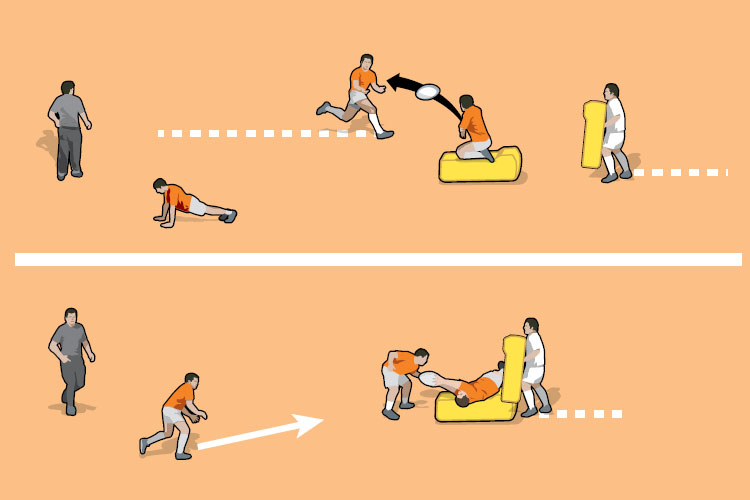
Game situation
Set up an attacker at the corner of the box, with a defender about 3m in front of him. Spread out four other numbered attackers and a defender. Release the attacker who aims to get to the far end. Both defenders aim to stop him. Release any number of attackers to support the ball carrier by calling their numbers.What to call out
- “As you take tackle, listen for support”
- “Support player: assess the threats to the ball carrier to make better decisions”
- “Beat the tackler before you think about passing”
Newsletter Sign Up
Coaches Testimonials

Gerald Kearney, Downtown Las Vegas Soccer Club

Paul Butler, Florida, USA

Rick Shields, Springboro, USA

Tony Green, Pierrefonds Titans, Quebec, Canada
Subscribe Today
Be a more effective, more successful rugby coach
In a recent survey 89% of subscribers said Rugby Coach Weekly makes them more confident, 91% said Rugby Coach Weekly makes them a more effective coach and 93% said Rugby Coach Weekly makes them more inspired.
Get Weekly Inspiration
All the latest techniques and approaches
Rugby Coach Weekly offers proven and easy to use rugby drills, coaching sessions, practice plans, small-sided games, warm-ups, training tips and advice.
We've been at the cutting edge of rugby coaching since we launched in 2005, creating resources for the grassroots youth coach, following best practice from around the world and insights from the professional game.
